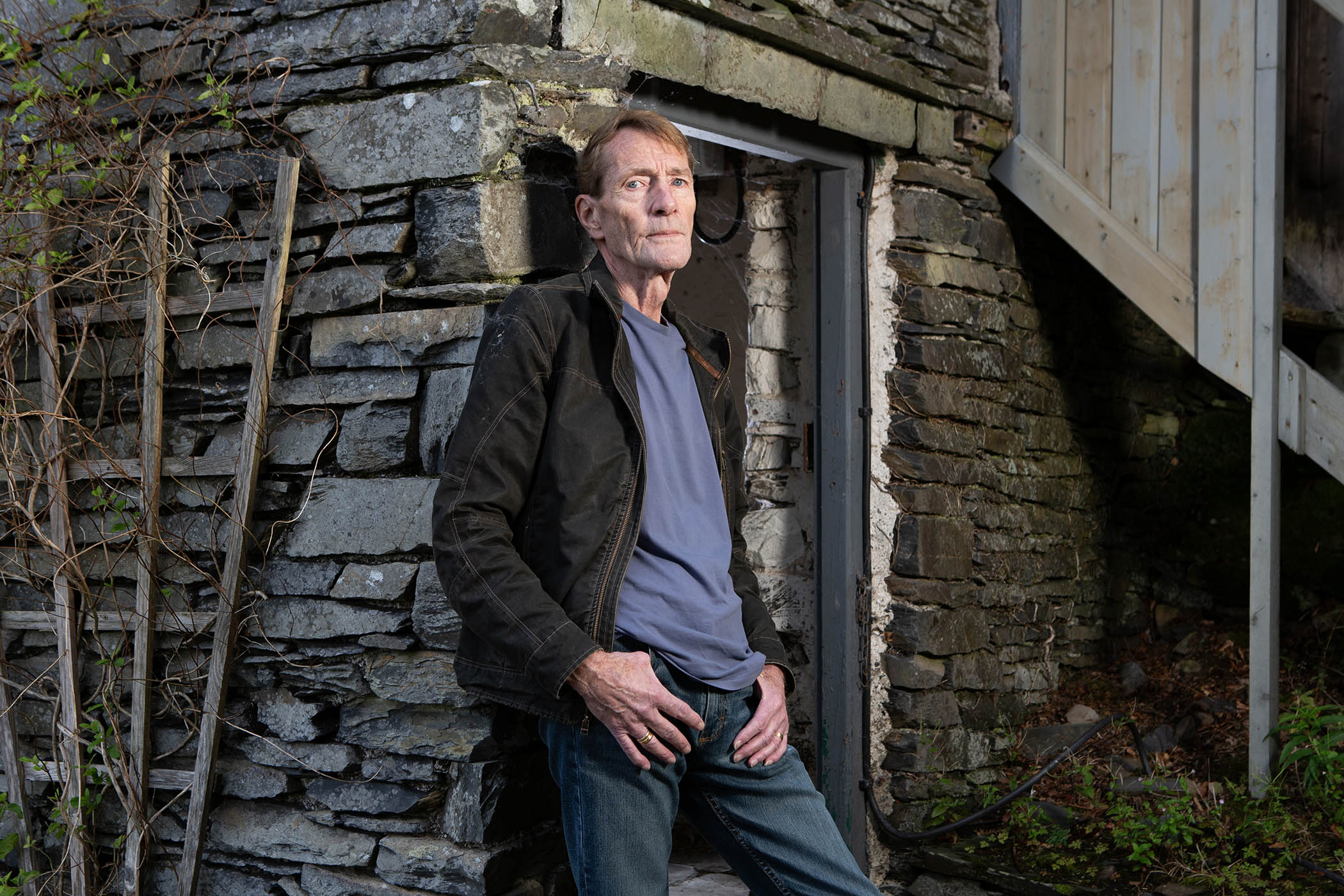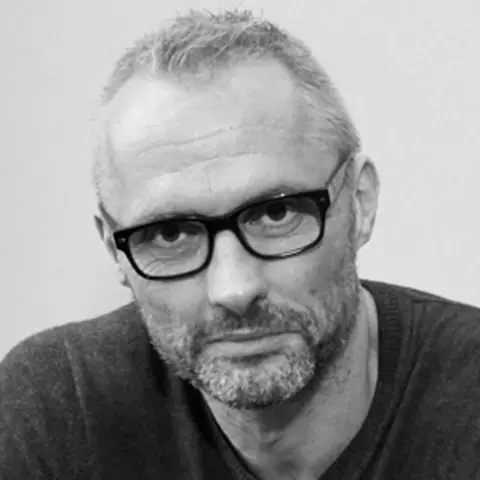Portrait by Richard Saker
Born in Coventry in 1954, Lee Child, real name James Grant, lives between England and America, the setting for his Jack Reacher series of novels. In 1994, he started writing his first bestseller after being told he would be losing his job at Granada TV. His books – featuring a former US Army military police major who chooses to live as a drifter – have sold around 200m copies worldwide and been adapted for the small and big screens. He officially retired from writing Reacher novels in 2020 after publishing his 24th, Blue Moon, handing the reins to his brother Andrew. His book of autobiographical essays, Reacher: the Stories Behind the Stories, includes a new Reacher short story.
What was the first book you remember reading?
Enid Blyton’s Five on Kirrin Island Again, which I loved. Later, it dawned on me that Blyton was creating an orphan fantasy. No parents involved. The kids had total freedom and autonomy. I had quite boring, strict, repressive parents, and that fantasy was so appealing.
What was the first story you wrote?
Killing Floor, when I was 39. Before that, just at primary school. I was a huge, obsessed reader from the age of three. My elder brother started school, and I was insanely jealous that he could do stuff I couldn’t. Our mother was very aspirational, and anxious we did well at school. She went over his lessons every afternoon to make sure that he understood them. I would eavesdrop and taught myself to read. It took me probably 35 years to appreciate that somebody’s writing these [books] and there’s a method to it.
What do you reread most?
I very rarely reread, but if pushed, Alistair MacLean’s The Last Frontier. It was written at the end of the 50s about the eastern bloc. It’s really perceptive about why the Soviet Union acted the way it did. It’s also a gripping, complex adventure.
Your balletic choreography and descriptions of Reacher’s fights are so specific. Is that from research or experience?
I grew up in Birmingham – my aspirational parents wanting me to do well at school put a target on my back. I was a class traitor or above myself. That attracted violence. But I was a big kid, and I was really good at it, so I fought a lot before I was 10 or 11 – just constant brawling. Reacher really is me age nine. I calmed down and became a civilised person, but those reactions remained. On my first book tour, in 1998, I was in San Francisco in a cheap hotel in a bad area. Somebody tried to mug me, and I was that nine-year-old again. I smacked [the man] in the throat and pushed him against the wall. It surprised and appalled me how that [instinct] never leaves you. Step into trouble, don’t step back.
How much are you like Reacher?
It’s not possible to write fiction without a large element of autobiography. The main character has got to have tastes and reactions, both social and political. I think it inevitably comes from yourself. In The Midnight Line, for instance, the fentanyl addict was treated as a very sympathetic character, rather than – as other novels do – a cipher or a plot point. I understand addiction a little bit and wanted to show that addicts are not bad people.
How do you build a series around a hero who is essentially unchanged at the beginning and end of each book?
I’m conscious of not wanting the endless inflation of stakes. If the hero is racing to disarm a nuclear bomb in the centre of the city, what do you do next year? Two nuclear bombs? Two cities? I try to keep it reasonably small, and reasonably realistic. The reader returns to Reacher because they want comfort and familiarity, so I go against the undergraduate theory that the hero must go on a journey. But, of course, I change year on year. The book shows what’s on my mind.
You have said the novels are revenge-based because they sprang from losing your job at Granada TV. Have you come to terms with that experience?
No, I have not. That has surprised me. I imagined that if I were to become successful, the old memories would fade away, and I would quickly feel indifferent. But that really didn’t happen. I’m still mad as hell about it 30-odd years later. It’s still there.
You have complained in the past that the literary world doesn’t take genre seriously, yet you are now celebrated by the establishment. Does that make you happy?
To be truly upset, you’ve got to feel somebody’s punching down at you. The thing about being a popular, bestselling writer is we have huge sales and lots of money. That is enough, in many ways, to stop being annoyed at condescending attitudes. But I think it’s nuts that people think genre is easier than reaching a very small and reliable audience. Some good, middle-class Julian Barnes or Martin Amis reader, they don’t expect to be 100% satisfied with a book. They put it down and start the next one. When you’re a bestseller, you’ve got to satisfy the person that reads one book a year on the beach. If you leave him disappointed, he may never read another book. So, on a theoretical level, it bothers me, but on a personal level, what have I got to complain about?
You are supposed to be retired now. Do you still want to go back and type?
For a long time, it was a job and, now having stopped doing it. I realise it was also a huge pleasure. It was my happy place where I could shut out everything and for hours at a time just be in a different dimension. I do miss that. I used to say: I’m never going to write anything ever again. And now I’m thinking: well, I have written short stories, maybe try something more ambitious. Every writer has 99 ideas that they would love to pursue. It’s always possible.
Reacher: the Stories Behind the Stories is published by Bantam (£16.99). Order a copy from The Observer Shop for £15.29. Delivery charges may apply
Newsletters
Choose the newsletters you want to receive
View more
For information about how The Observer protects your data, read our Privacy Policy

